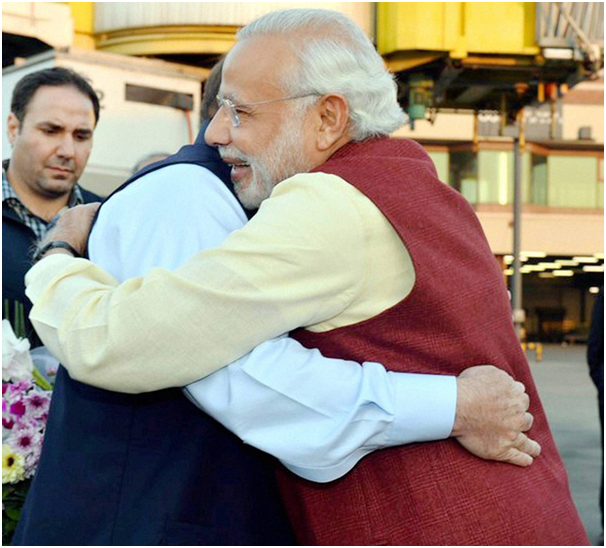
NEW DELHI: Prime Minister Narendra Modi does not seem to have taken a final decision about the Foreign Secretary level talks scheduled to be held in Islamabad on January 14. Given the pressure on the government arising from the Pathankot terror attack, there are two opinions about the talks with the softer option being to defer these, and have instead a National Security Advisor level meeting to discuss the attack, and follow up action by Pakistan.
There is international pressure on the government not to defer the agreed upon dialogue, given the assessment that a postponement in India Pakistan relations tends to be long term. However, the pressure from within the hard line security established close to the government in power tends to favour a cancellation of the talks for the moment at least. A confused Minister of External Affairs Sushma Swaraj gathered retired diplomats who had worked closely with the Manmohan Singh government for an assessment. Both views were expressed by the small group that have always differed in approach to Pakistan in the past as well. Clearly the confusion was not cleared by this unprecedented meeting.
PM Modi, has ignored the Pathankot terror attack with his weekly Mann ki Baat steering clear of the headlines that have dominated for four days now, but cannot escape his personal responsibility for starting the dialogue. His pull aside meet with Pakistan Prime Minister Nawaz Sharif in Paris, followed by the sudden stop over in Lahore, cleared the way for a dialogue with both leaders holding hands, and embracing hard.
It is clear from the ambitious attack on the Pathankot Air Force base that it was underway even when PM Modi landed in Lahore. And that the mentors and the executors of the operations that India has again made clear is Pakistan were not moved enough by the visit to call off their plans.
Seven security personnel, including a Lt Colonel from the elite National Security Guards has been killed despite advance intelligence knowledge. The Prime Minister has had top security level meetings but the political response to Pakistan is still awaited.
Pakistan on its part has insisted that it is not involved, and as a gesture of good faith is prepared to take immediate action on the basis of any information that India brings to the table. The US has condemned the attack, but significantly insisted that it expects both the countries to work together to find the perpetrators and take action.
US State Department spokesperson John Kirby said, "As we've said before, this is an issue that, as are so many issues between India and Pakistan, we want to see them work out bilaterally." He added that normalisation of relations between India and Pakistan remains vital to the security and economic prosperity of the entire region.
"We strongly encourage the governments of both India and Pakistan to remain steadfast in their commitment to a more secure and prosperous future for both our countries and for their region," he said. These are the strongest comments from Washington on India Pakistan relations, with the pressure being exerted till date for India to open the dialogue being exerted from behind-the-scenes. Kirby has now made it very clear that there is no alternative to talks even after the terror attack. As for Pakistan, “We're mindful that there remain some safe havens that we obviously want to see cleared out. And we continue to engage with the government of Pakistan to that end. And again, I would point you back to what the government of Pakistan itself has said and acknowledged that it's not going to discriminate among terrorist groups and it will continue to take the fight (to them)," Kirby said. The Pakistani government, the Pakistani people very much understand the threat here, he added.
The pressure thus is firm, and hence the confusion in New Delhi as the domestic pressure is equally strong to defer the dialogue. The Opposition is waiting in the wings, with the Congress firing the first salvos against PM Modi and his sudden decision to resume the dialogue without the necessary homework.

